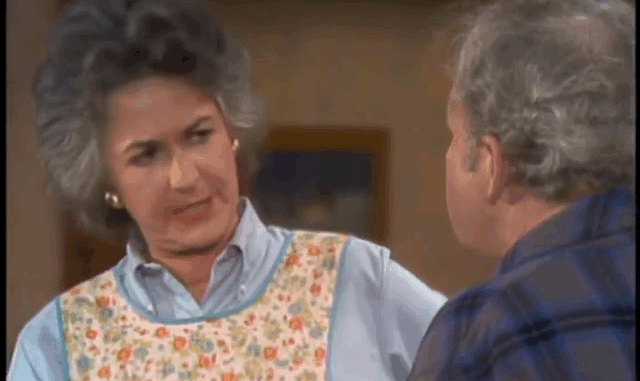
When All in the Family aired its season two episode “Cousin Maude’s Visit” on December 11, 1971, it wasn’t just another sitcom moment—it was a turning point in American television. Bold, biting, and brimming with character, the episode introduced audiences to Maude Findlay, a liberal powerhouse who would go on to anchor her own groundbreaking spin-off, Maude. Over 50 years later, this single episode continues to spark conversations about family, politics, and social change.
A Clash of Titans: Archie Bunker vs. Maude Findlay
In “Cousin Maude’s Visit,” the Bunker household is swept into chaos when Edith’s cousin Maude comes to help care for the family during a bout of the flu. What ensues is an ideological showdown between Maude (played by Bea Arthur) and Archie Bunker (Carroll O’Connor)—two characters who couldn’t be more different.
Archie, the stubborn, working-class conservative, is confronted by Maude, a sharp-witted, outspoken liberal feminist. The tension is electric, the dialogue razor-sharp, and the comedy deeply rooted in the cultural divides of the era—many of which still echo today.
Why This Episode Mattered Then—and Matters Now
“Cousin Maude’s Visit” marked the first appearance of Bea Arthur as Maude, a character who would soon break new ground in television with her own show addressing divorce, abortion, and aging. But even in her debut, Maude was a revelation. She wasn’t just comic relief; she was a voice of reason, defiance, and modernity in a world that often clung to tradition.
Norman Lear, the show’s creator, masterfully used humor to confront uncomfortable truths. This episode aired at a time when America was grappling with Vietnam, civil rights, and gender roles. Today, as the culture war continues in new forms, the arguments between Archie and Maude feel as current as ever.
Cultural Impact: The Birth of Maude
Bea Arthur’s performance was so powerful that CBS executives took notice immediately. Within a year, Maude premiered and became a cultural phenomenon in its own right. The character’s success demonstrated a shift in what audiences wanted—strong female leads with convictions and complexity.
Timeless Television
Rewatching “Cousin Maude’s Visit” today, one can’t help but marvel at how fearless television once was—and how much we still have to learn from it. The episode captures a moment in history, but it’s also timeless in its themes: generational conflict, political division, and the enduring messiness of family.
Final Thoughts
“Cousin Maude’s Visit” isn’t just a great episode—it’s a defining one. It challenged viewers to think, laugh, and maybe even change. In an age of polarized discourse, its message remains powerful: disagreement doesn’t mean disconnection. And sometimes, the most important conversations happen around the dinner table—with a side of sarcasm and a whole lot of heart.